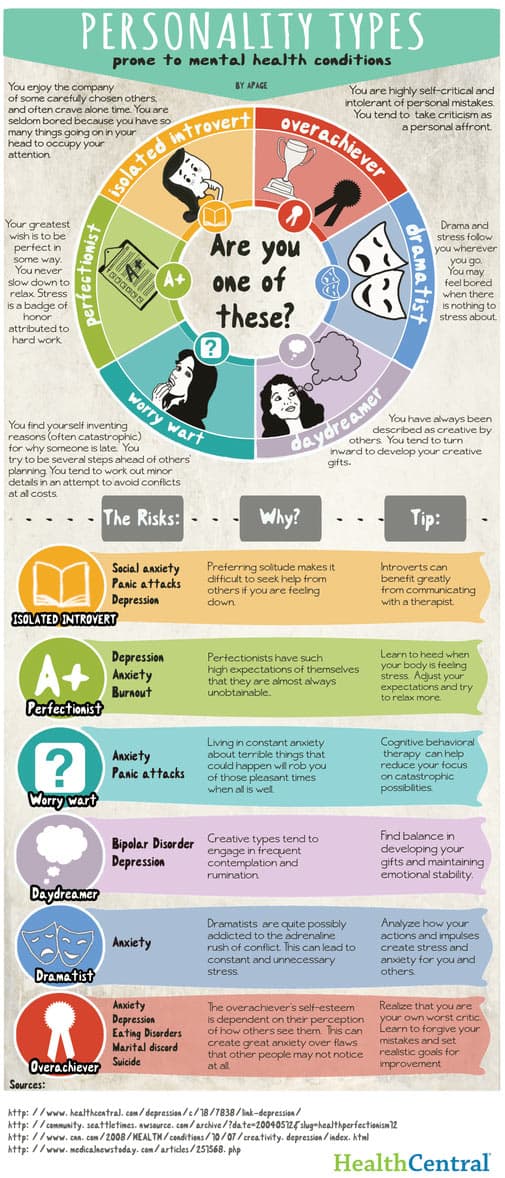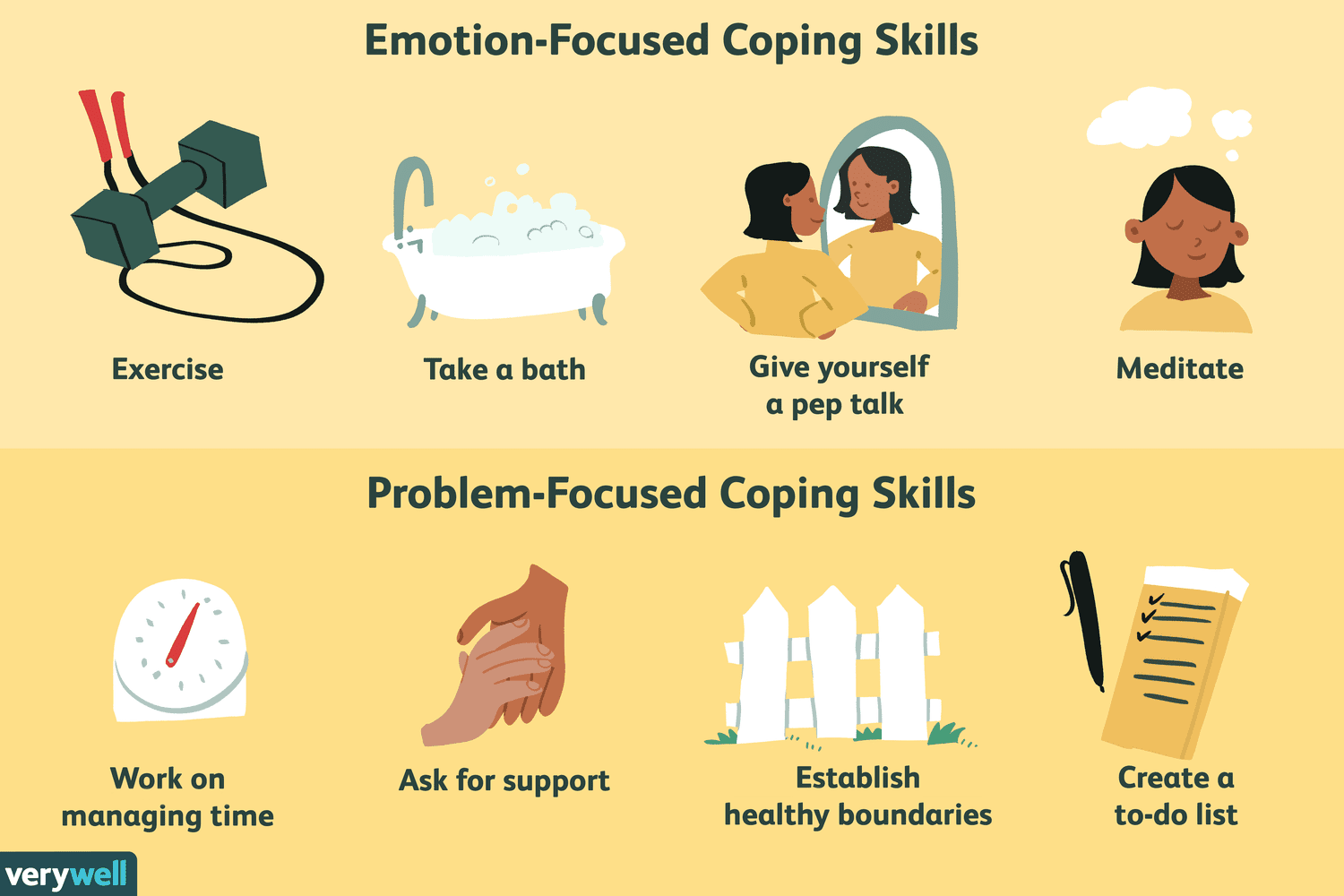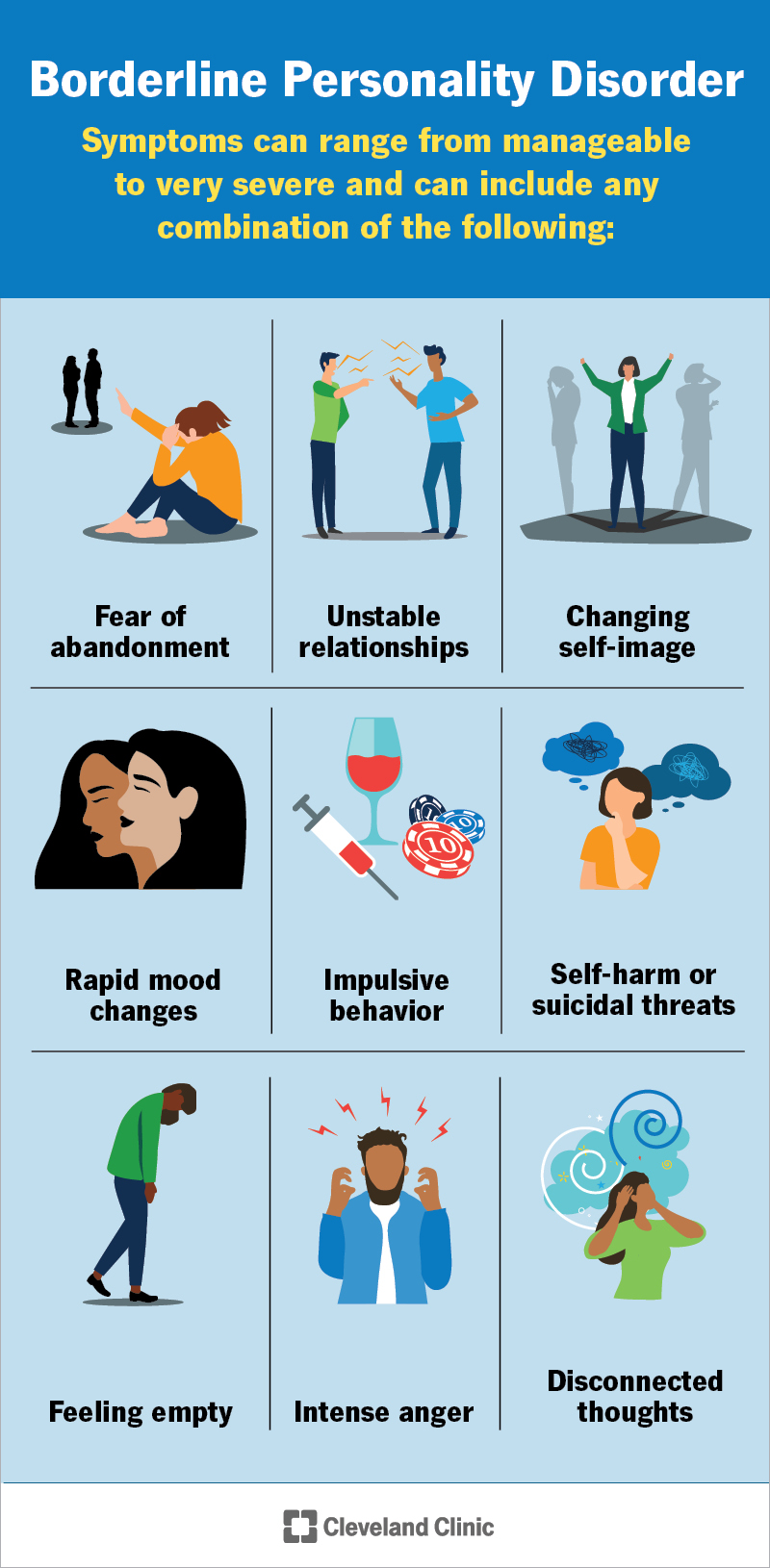How Do Different Personality Types Experience And Cope With Mental Health Challenges?
In this article, we will explore the fascinating ways in which different personality types experience and cope with mental health challenges. Whether you’re an introvert, extrovert, or somewhere in between, your unique personality traits can greatly impact how you navigate the ups and downs of your mental well-being. We’ll also delve into practical strategies that individuals with specific personality traits can employ to enhance their mental health. So, whether you’re looking for insights or seeking guidance, join us as we uncover the powerful relationship between personality and mental health.

Personality Types and Mental Health
Overview
When it comes to mental health, each person experiences and copes with challenges in their own unique way. One factor that plays a significant role in this equation is the individual’s personality type. Understanding how different personality traits influence mental health can help individuals tailor strategies to improve their well-being. In this article, we will explore various personality types and their associated mental health challenges. Additionally, we will provide strategies that individuals with specific personality traits can utilize to enhance their mental health.
Understanding Personality Types
Personality types can be categorized into different groups based on various characteristics. While there are numerous personality typing systems, for the purposes of this article, we will focus on common classifications such as introverts, extroverts, Type A personalities, Type B personalities, neurotic personalities, stable personalities, empathetic personalities, and analytical personalities. Each of these personality types comes with its own set of characteristics and mental health challenges. By gaining a better understanding of these traits, individuals can begin to identify strategies to address their unique needs.
Personality Type 1: Introverts
Characteristics of Introverts
Introverts are individuals who thrive in quieter and more solitary settings. They often feel energized from spending time alone and may find social interaction draining. Introverts tend to be reflective and introspective, preferring deep connections with a few close friends rather than large social circles.
Unique Mental Health Challenges
While introverts can benefit from their introspective nature, it may also lead to overthinking and excessive self-criticism. They may be more prone to feelings of loneliness and isolation, which can contribute to mental health challenges such as depression and anxiety.
Strategies for Improving Mental Health
For introverts, it is crucial to create a balanced lifestyle that allows for both solitude and social interaction. Engaging in activities that promote self-reflection, such as journaling or meditation, can help introverts process their thoughts and emotions. Additionally, introverts should prioritize building deep connections with a few trusted individuals to cultivate a sense of belonging and support.
Personality Type 2: Extroverts
Characteristics of Extroverts
Extroverts thrive in social settings and often feel energized by being around others. They are outgoing, energetic, and enjoy being in the spotlight. Extroverts tend to have a large network of friends and acquaintances, valuing frequent social interaction.
Unique Mental Health Challenges
While extroverts generally find joy in socializing, they may struggle with periods of isolation or lack of social stimulation. Too much time alone can lead to feelings of restlessness and unease. Additionally, extroverts may face challenges in setting boundaries and saying no, which can contribute to stress and burnout.
Strategies for Improving Mental Health
Extroverts should prioritize maintaining a healthy balance between social interaction and alone time. Engaging in activities that allow for socializing, such as joining clubs or group activities, can help fulfill the extrovert’s need for connection. Additionally, setting clear boundaries and learning to say no when necessary can prevent feelings of overwhelm and promote overall well-being.
Personality Type 3: Type A Personalities
Characteristics of Type A Personalities
Individuals with Type A personalities are often driven, competitive, and high-achieving. They tend to be ambitious, organized, and work tirelessly to achieve their goals. Type A personalities excel in leadership roles and are known for their strong time management skills.
Unique Mental Health Challenges
While Type A personalities are often successful in their endeavors, their drive for perfection and constant need for achievement can take a toll on their mental health. They may experience heightened stress levels, anxiety, and a sense of constant pressure to perform.
Strategies for Improving Mental Health
For Type A personalities, it is essential to prioritize self-care and create a healthy work-life balance. Learning to delegate tasks, set realistic goals, and practice relaxation techniques such as mindfulness or deep breathing can help manage stress levels. It is also important for Type A personalities to recognize that productivity does not define their self-worth and to take breaks to recharge.

Personality Type 4: Type B Personalities
Characteristics of Type B Personalities
Type B personalities are often characterized as relaxed, easy-going, and less competitive. They tend to have a more laid-back approach to life and prioritize overall well-being over achievement and success.
Unique Mental Health Challenges
While Type B personalities may appear to have a lower stress level compared to their Type A counterparts, they can still experience mental health challenges. Type B personalities may struggle with a lack of drive or motivation, potentially leading to feelings of dissatisfaction or unfulfillment.
Strategies for Improving Mental Health
For Type B personalities, it is important to find a balance between relaxation and productivity. Establishing realistic goals and creating a structured routine can help provide a sense of purpose and accomplishment. Additionally, seeking out new challenges or hobbies can help spark motivation and prevent feelings of stagnation.
Personality Type 5: Neurotic Personalities
Characteristics of Neurotic Personalities
Neurotic personalities tend to be more emotionally reactive and experience higher levels of negative emotions such as anxiety, worry, and mood swings. They may have a tendency to overthink and catastrophize situations, often perceiving threats or problems that may not exist.
Unique Mental Health Challenges
Neurotic personalities are more susceptible to developing mental health disorders such as generalized anxiety disorder, depression, and panic disorder. Their tendency to dwell on negative thoughts and maladaptive coping mechanisms can perpetuate a cycle of distress and impair their overall well-being.
Strategies for Improving Mental Health
For individuals with neurotic personalities, it is important to focus on building emotional resilience and managing anxiety. Engaging in activities that promote relaxation, such as yoga or mindfulness meditation, can help calm the mind and reduce anxious thoughts. Seeking therapy or counseling can also provide valuable tools and techniques to cope with negative emotions and develop healthier coping mechanisms.

Personality Type 6: Stable Personalities
Characteristics of Stable Personalities
Stable personalities are often characterized by emotional consistency, resilience, and adaptability. They tend to have a balanced approach to life and are less likely to experience extreme shifts in mood or temperament.
Unique Mental Health Challenges
While stable personalities may have a more secure emotional foundation, they are not exempt from mental health challenges. They may struggle with adapting to sudden changes or transitions, potentially leading to feelings of discomfort or stress.
Strategies for Improving Mental Health
For individuals with stable personalities, it is important to focus on maintaining their emotional well-being through self-care practices. Engaging in activities that promote relaxation, such as maintaining a regular exercise routine or practicing hobbies, can help manage stress levels. Additionally, building a support network of trusted individuals can provide a source of comfort and stability during challenging times.
Personality Type 7: Empathetic Personalities
Characteristics of Empathetic Personalities
Empathetic personalities tend to be highly attuned to the emotions and needs of others. They often possess excellent listening skills, show genuine compassion, and strive to help others. Empaths may absorb and feel emotions intensely, even those of people around them.
Unique Mental Health Challenges
While being empathetic is a valuable trait, it can also pose challenges to an individual’s mental health. Empaths may frequently feel emotionally drained or overwhelmed by the emotions of those around them. They may also struggle with setting boundaries and prioritizing their own needs.
Strategies for Improving Mental Health
For empathetic individuals, setting boundaries and practicing self-care are essential. Learning to identify and differentiate their emotions from those around them can help prevent emotional exhaustion. Engaging in activities that recharge personal energy, such as spending time in nature or engaging in creative pursuits, can help restore emotional balance.
Personality Type 8: Analytical Personalities
Characteristics of Analytical Personalities
Analytical personalities thrive on logical thinking, problem-solving, and critical analysis. They value precision and accuracy in their pursuits and tend to approach situations with a rational mindset.
Unique Mental Health Challenges
Analytical personalities may be more prone to overthinking and analysis paralysis. Their constant need for logic and rationality can make it challenging for them to navigate emotions, potentially leading to a disconnect between their emotional and logical selves.
Strategies for Improving Mental Health
For analytical personalities, it is important to find balance by acknowledging and expressing emotions alongside logical thinking. Engaging in activities that promote emotional awareness and expression, such as journaling or attending therapy, can help bridge the gap between logic and emotions. Additionally, incorporating mindfulness practices can assist in grounding the analytical mind and promoting overall well-being.
Conclusion
Key Takeaways
Understanding the different personality types and their associated mental health challenges can provide valuable insights into tailoring strategies for improved well-being. Some key takeaways include:
- Introverts should focus on balancing solitude and social interaction while cultivating deep connections.
- Extroverts should prioritize maintaining a healthy balance between socializing and alone time, while setting boundaries and saying no when necessary.
- Type A personalities should prioritize self-care, establish realistic goals, and recognize that productivity does not define self-worth.
- Type B personalities should find a balance between relaxation and productivity, pursue new challenges or hobbies, and seek opportunities for personal growth.
- Neurotic personalities should focus on building emotional resilience, managing anxiety, and seeking therapy or counseling.
- Stable personalities should engage in self-care practices, build a support network, and adapt to changes through relaxation techniques.
- Empathetic personalities should set boundaries, practice self-care, and engage in activities that recharge personal energy.
- Analytical personalities should acknowledge and express emotions alongside logical thinking, engage in activities that promote emotional awareness, and incorporate mindfulness practices.
Seeking Professional Help
While the strategies provided in this article can be valuable, it is important to remember that seeking professional help from therapists, counselors, or mental health practitioners is crucial in addressing specific mental health challenges. These professionals can provide personalized guidance and support tailored to an individual’s unique circumstances, helping to achieve optimal mental well-being.



















